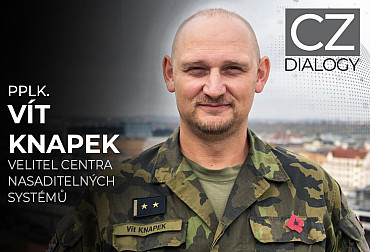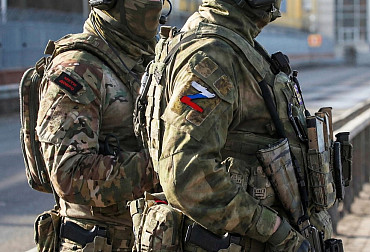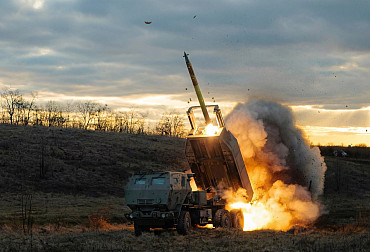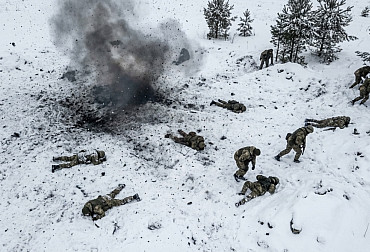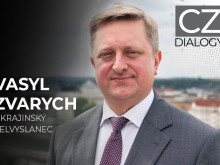Gen. Václav Vlček: Huge range of specialties under the Operations Command must play like an orchestra
The Operations Command is an independent operational headquarters under the direct command of the Chief of the General Staff of the Army of the Czech Republic, which is comprehensively responsible for the planning, deployment, management and security of the forces and assets of the Armed Forces of the Czech Republic in operations. It was established on 1 January 2020 as the successor to the Joint Operations Centre of the Ministry of Defence. Its task is to command units deployed in missions, foreign operations and on the territory of the Czech Republic. The current Commander of the Operations Command is Major General Václav Vlček, who has extensive experience from UNPROFOR in Croatia, IFOR in Bosnia and Herzegovina, ISAF in Afghanistan and the EU training mission in Mali. Within NATO structures, he was Deputy Chief of Staff for NATO Operations Management in the Balkans and Deputy National Military Representative of the Czech Republic at the Supreme Allied Command Europe. General Vlček was the next guest on our discussion programme CZ DIALOGUES.
Video: Interview with Commander of the Operations Command Major General Václav Vlček / CZ DEFENCE
Simply put, the work of the Operations Command is to plan and conduct operations at home or abroad. "The activity itself is quite extensive and there are a large number of disciplines and processes that the command has to manage. We're talking about a headquarters that has about a hundred and fifty people plus a support element," General Vlček said in an interview, adding that there are another 100 people in the Operations Support Centre. This entire complex has to deal with planning, command and control in operations. "Planning provides basically all activities from personnel, operations, logistics, medical and financial. It's a huge range of disciplines that are under one command, and it has to run like an orchestra. That is, the chief conductor has to say when what instrument is playing to make it work," the general elaborated on the workings of the Operations Command.
The upcoming operations are twofold. Either they are foreign missions where the Czech Army is part of a larger whole, such as NATO multinational operations, EU or UN operations. And then there are national operations, in which case the scope of the activity depends on its specific type. "Each type has its own planning process. In NATO specifically, of course, we have set standards. The HQ is prepared for it, it gets a brief where it is set what the Czech Republic wants to provide for a particular operation. And then my staff sits down and deals with everything from intelligence to the financial details of the whole operation and prepares an operational plan or an operational order," General Václav Vlček reveals.
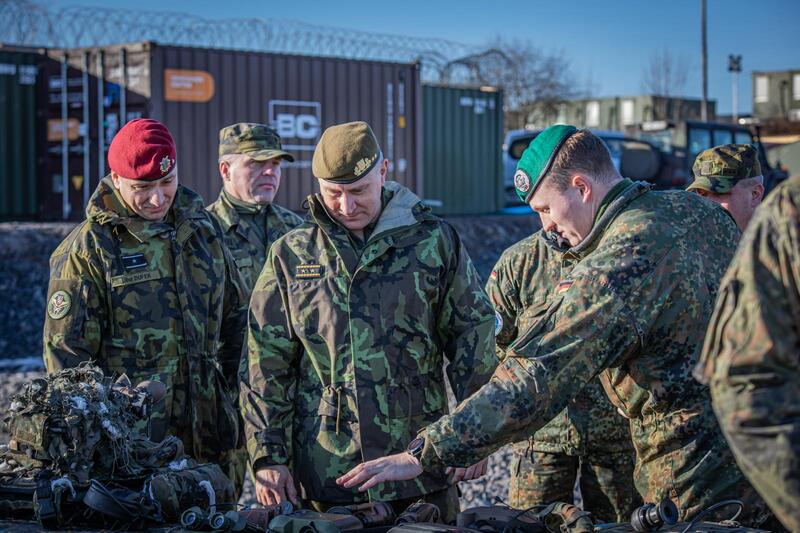
Soldiers of the Czech Armed Forces are currently deployed in several missions in smaller units. "We are currently operating in 12 operations. As I have already mentioned, these are all types - NATO, EU and UN operations. We put people there for a long time, we always deal with the priorities of the Czech Republic and foreign policy, of course, and we more or less have to fulfil the mandate given to us by the government and, of course, both chambers of parliament," General Vlček said in the interview. The type of mandate also determines the specific involvement of our soldiers in individual operations. These are mainly soldiers who are integrated into the staffs to command specific missions in Africa and Europe, in the Middle East. Probably what people perceive most today is the participation of our soldiers on the eastern border of the Alliance. "We've had two of those parts there since the beginning when NATO Enhanced Forward Presence was created, where of course the targets were Estonia, Lithuania, Latvia and Poland. Subsequently, after 2022, after Russia's entry into Ukraine, the other countries of the south-eastern part of the eastern wing of the Alliance were also addressed," says General Vlček.
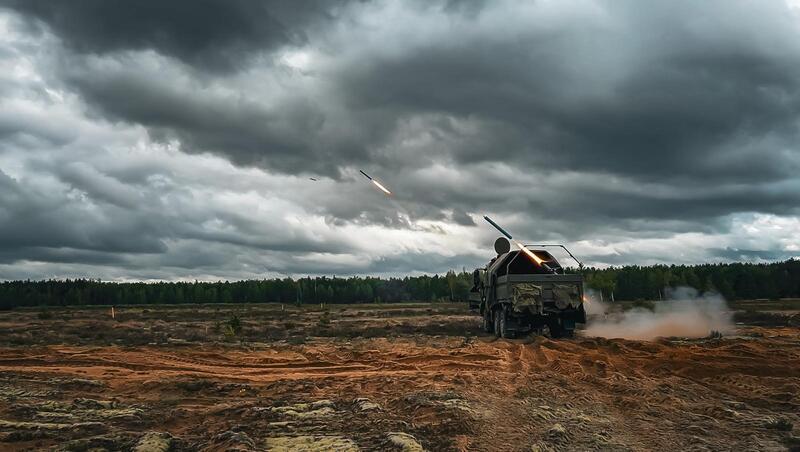
Major General Vlček evaluates the deployment of our soldiers in the International Battle Group in Slovakia (MN BG SVK) as a great success. "We are the leading state there, we were able to coordinate the activities of all the other states operating with us. And, of course, thanks to the historical ties with Slovakia, we were able to provide adequate conditions for all the soldiers on the ground," said the Commander of the Operations Command.
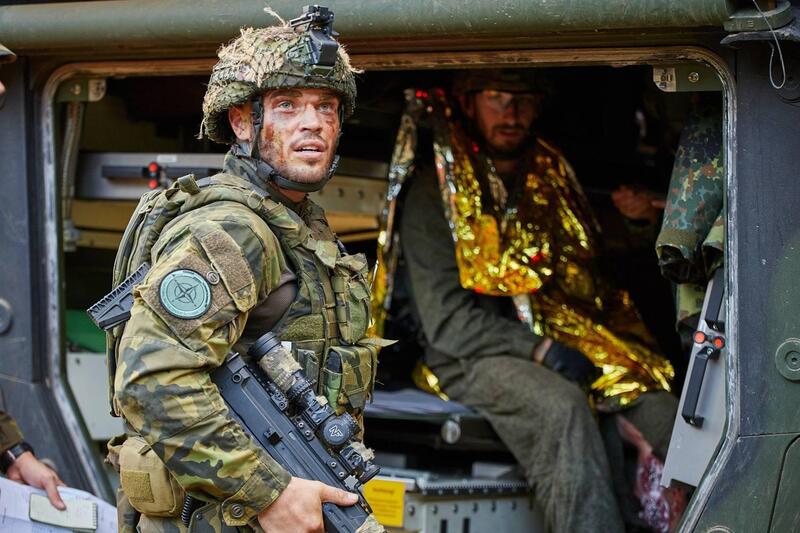
Of course, training is also an important part of soldiers' preparation. This year in particular, soldiers are participating in a large number of exercises, both in the Czech Republic and abroad. This year is very specific. A major NATO exercise called Steadfast Defender 2024 is currently under way, with 90 000 troops taking part, including a new member of the Alliance, Sweden. "It includes basically not only NATO exercises, but also national exercises, but mainly US exercises. The three types of exercises have been interlinked into one big unit, which will be intertwined throughout the year," Major General Vlček said. The beginning of the year was significant for the ACR, with the cash activation exercise, which tested all active elements of the Army within the NATO Response Force (NRF), including full activation, control, material and other tasks. "It verified that we have the activation documentation in order, the Soldiers know what to do and the whole thing is functional," General Vlček said.
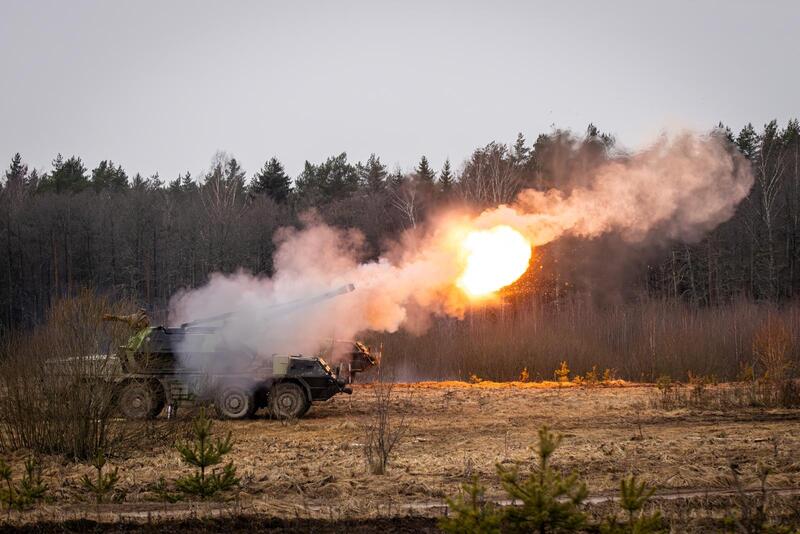
Another important exercise, which took place at the Bechyně airfield and at the military training area of the Tisá Chemical Troops, was an exercise called LOYAL LEDA 2024. For us it was significant that there was a German-Dutch corps. We had already agreed last year that this corps would deploy its command elements, command posts, namely the main command post and the forward command post, to two locations on our territory," says General Vlček, according to whom the role of the Czech troops took place in two operational lines. The first line was to provide support at the deployment site on our territory, i.e. Host Nation Support (HNS), where the Czech Army provided the Bechyně and Tisá sites, including on-site support and cooperation with the headquarters. The second line of support was the provision of a virtual division and simulation of the division's activities, working with the corps headquarters. "In total, there were three divisions, ours was one of them, and our soldiers were in the Polish vicinity, where there is a large centre for simulating and conducting large NATO exercises," General Vlček explains. As part of the exercise, our soldiers eliminated division and divisional elements while learning the operations at higher troop levels. "Both sides gained something from it, and it was essential for us to test not only the Operations Command, but also other parts of the Army. How would it actually work if a corps headquarters was deployed in the Czech Republic and what does it all entail," adds Maj. Gen. Vlček, commander of the Operations Command.
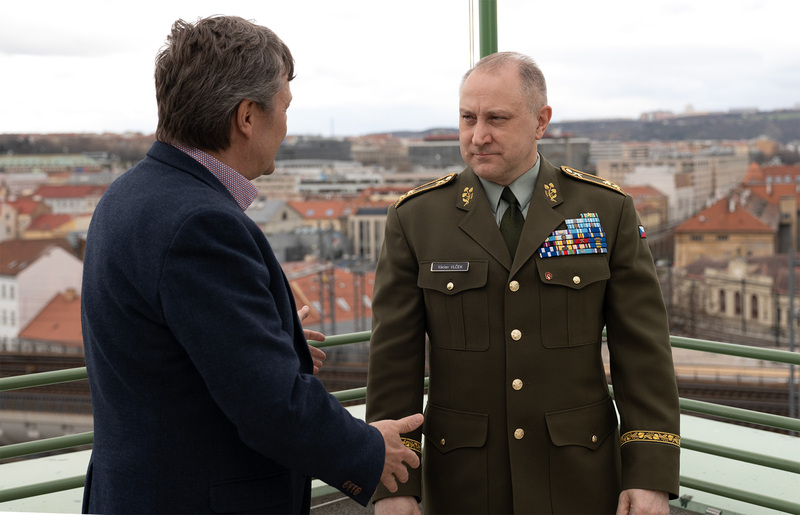
Valuable experience from real combat in Ukraine is undoubtedly an important element for the training of soldiers and units. Soldiers discuss them with the Ukrainian ones at exercises both in our country and in Poland at all levels. "Of course, this is tactical experience, experience in command and other things. Our training command at the Vyškov Military Academy has the task of collecting all the information and preparing a publication about the Ukrainian experience. What works there, what doesn't work, what needs to be improved - we are interested in that," says General Vlček, adding that there is a great interest in tactical activities for tactical units. "In the past, we have had quite large command posts at the battalion level, and even larger ones at the brigade level. The effort will be to shrink those command posts, make more command posts, switch each other and change positions quickly. That's one such experience. The other thing, of course, is the use of unmanned aerial vehicles, but mainly defense and protection against them. Another thing is of course electronic warfare, there's a lot of it," General Vlček says in the interview.
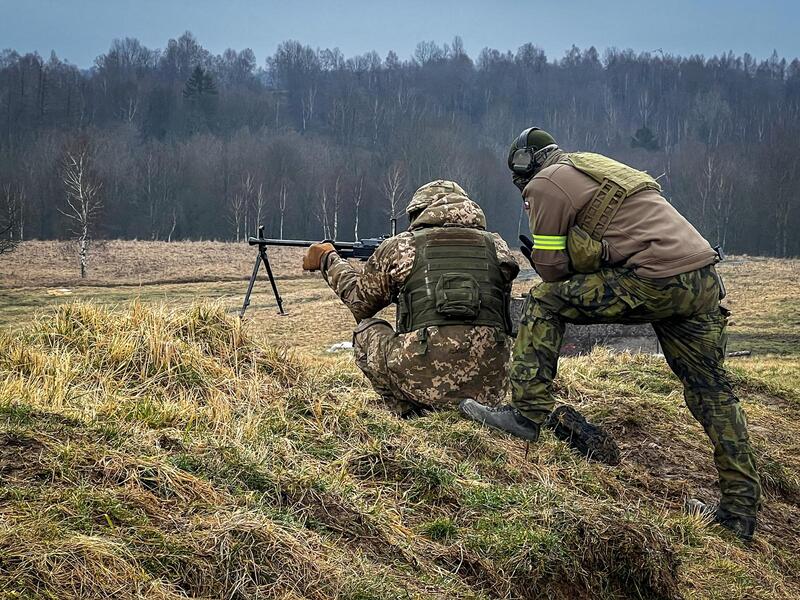
Within the framework of the deployment of our units, we were also interested in the use of active reserve. "We started using active reserves on the eastern flank, and there was room for us to deploy active reserves in operations, which was not so common in the past," says General Vlček, adding, "We said yes, why not use it? At the same time, it's a great experience for active reservists to operate in professional units where their own role is and then bring that experience back to the Czech Republic to their active reserve units to improve their training."
With the Commander of the Operations Command, Major General Václav Vlček, we further discussed, for example, the role of the active reserves of other alliance nations, fulfilling and preparing for HNS tasks and much more. To learn more, listen to the full interview at the top of this article.











